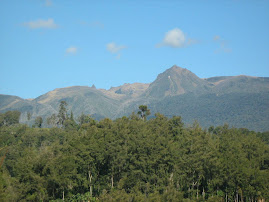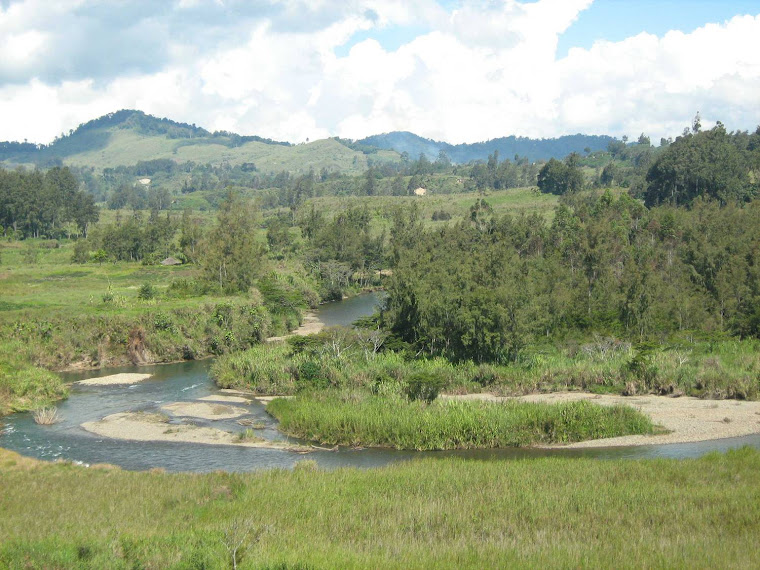25th July, 2008
China in the Pacific: The Implication for Washington
By Mathew Yakai in Changchun
BEIJING is amongst other major external powers in the Pacific Island region. Others include United States, Australia, New Zealand, France, Britain and Japan.
Given China’s presence, many scholars, unfortunately from the West continuously accuse China for trying to explore resources, by comparing Island countries to Africa.
But China’s whatever interest it may be in the Pacific, will it have any political, economic and strategic implication on Washington and what will be the new U.S. President to be elect’s attitude towards Beijing’s presence in the Pacific.
Also, the President to be elected Nov. 4 2008 will continue with Bush Administration’s 2007 “re-engagement” policy with the region, and what will be his goal? Will he work along with Beijing, and other regional powers as developmental partners, or we will see another “cold war” rivalry?
In 2008, the Bush Administration pledged to “re-engage” with the region and declared 2007 the “Year of the Pacific”.
Among the main topics, aims, and initiatives under discussion at the Pacific Island Conference of Leaders held in Washington , DC, in March 2007: expanding U.S. public diplomacy efforts and foreign aid activities, strengthening US-Pacific trade and preferential trade programs for the Pacific island countries, address global warming and other environmental concerns in the region, and enhancing educational and cultural exchanges.
Many scholars think that the “re-engagement” by US is due to China’s heightened regional profile, which has been generally welcomed by local leaders but regarded with suspecision by Western commentators protective of an area long regarded as America’s backyard.
However, there is no indication that Western neglect has facilitated China’s rise in the hemisphere, nor that Beijing intends to challenge U.S. leadership in the region.
It is unlikely that U.S. neglect or pre-occupation with other parts of the world have made Oceania vulnerable to China’s increased influence.
China has a growing interest in the resources of the region, particularly gas and minerals in Papua New Guinea. That happens with any countries around the world.
However, China’s presence is also to gain support of island states on a range of political issues, most notably its ongoing efforts to isolate Taiwan.
China, thus, goes to the pacific with its “soft loan” with no strings attached, as opposed to other loans from Western countries with strings attached, mostly takes longer period to approve.
For China, loans and assistance are given after short meetings or discussions, humbly welcomed by the island leaders, given their desperate economies.
This makes Western countries to accuse Beijing for corrupting the Pacific island countries for its “dollar diplomacy” when not playing by the established rules.
Many scholars have associated the 2006 up rise against the people of Asian origin in Solomon Islands to Beijing and Taiwan’s “dollar diplomacy” that allegedly influenced the domestic politics. But there is no evidence that China has singled out Oceania for special attention.
China was part of the allied powers during the Cold War period to prevent communism from spreading to the region.
America, then left the Oceania under the guise of Canberra, New Zealand, Britain and other partners after the collapse of former Soviet Union, suspended all its programs and even embassies.
Canberra and New Zealand with few other allies became Washington’s “eyes and ears”. These countries also engaged in many developmental and economic programs that were left isolated by Washington.
But the Island leaders recently showed the Western powers that they have other options, to “look north” to China. Papua New Guinea and Fiji with other Pacific Island countries now recognize the “one china policy”.
This is in line with Beijing’s attempt to isolate Taiwan. But although China’s rise disturbs a situation where a small number of allied powers exercise an enormous amount of regional influence, all of these regional actors have growing entanglements with China – and compelling reasons to avoid confrontation. USA is no exception.
Beijing stands apart from this consortium of donors, offering support but asking little beyond recognition of “One China” policy.
USA and other Western powers have no option but to accept, barring significant setbacks, China is in the Pacific to stay.
They can do little but urge Beijing to play by the rules they have established and enforced for decades. It may be USA and its allies in the region rather than China that ultimately have to compromise.
The Oceania does not pose any threat to democracy or American values, as in Iraq and Afghanistan, and allegedly Iran and North Korea.
Pacific Island leaders want peace, harmony and economic prosperity on the bases of good governance and accountability. The island countries perhaps need a regional leader to lead towards common economic prosperity then lead for its self interest.
When U.S. pulled out all its programs after the Cold War, New Zealand, Australia, Britain and other Western powers worked along with the regional governments. But since then, no tangible developments have been achieved. Few we see today are replica of neo-colonialism.
Today, economic indicators show that no improved economic progresses have been made. All seen today are half decaying buildings and infrastructures of colonial “masters”, especially Australia.
On the other hand, China is not a new comer in the Pacific. Chinese were in the Pacific, example, Papua New Guinea during the colonial period, or even before. But China’s presence today provides an option to the Island countries as a developing country itself.
Beijing’s initiative has been welcomed by the pacific leaders. Prime Ministers and leaders from Island countries who recognize the “One China” policy make their first state visit to Beijing then their traditional partners like USA, Australia, New Zealand and Britain. Beijing welcomes them with a red carpet treatment.
The 2007 “Year of the Pacific” declared by the Bush Administration has sent a signal throughout the region, particularly to Beijing because of the allegation that Beijing’s presence in the Pacific was closely monitored by Washington.
This is a clear indication of America’s attempt to “contain” China’s expansion in the region, a bold “cold war” mentality in this century.
Conclusively, this will be treated as the second Cold War between the largest remaining communist state and the world’s most powerful nation. At the end, the Pacific Island countries suffer economically, because such rival is for their own interest, as seen during the Cold war period between USA and former USSR.
Obama and Clinton are liberal, in the sense that they both disagree with Washington’s military engagement in Iraq.
Fair enough because Bush declared victory over the Afghanistan war but still got stuck in there. For how long? Obama and Clinton, who gets the top post then, can decide.
But mind you, a complete withdrawal is not a solution, but a disaster to the people there, that USA initially proclaimed to liberate.
The result of USA being in Iraq and Afghanistan is the result of unilateral approach, a typical realist mentality. A lesson for Obama and Clinton to learn.
That's in Iraq, where oil is the prime target for USA, as opposed to humanitarian liberation. In the Pacific, what does USA want, when Bush made known his 2007 “re-engagement policy”?
This will be made, even clearer when either Obama or Clinton becomes the President of United States in this years (2008) election.
America’s “re-engagement” in the Pacific is both welcoming, but suspicious at the same time.
For what ever reasons, Pacific Island leaders will work with a liberal President, then a realist. Definitely, not another George Bush, both the son and father.
In the Pacific, USA should come as a development partner, and not to “contain” China, because Island leaders know who is genuine. They are not new in regional and world politics.
Note: Asia-Pacific Perspective: China + looks at Chinese society, culture, economy, governance and China’s role within the Asia Pacific region and the world over. It mainly focuses on how PNG can learn from China’s experience. The writer is a PNG student in China.
American movie include Fijians as cast and crew
7 years ago









No comments:
Post a Comment